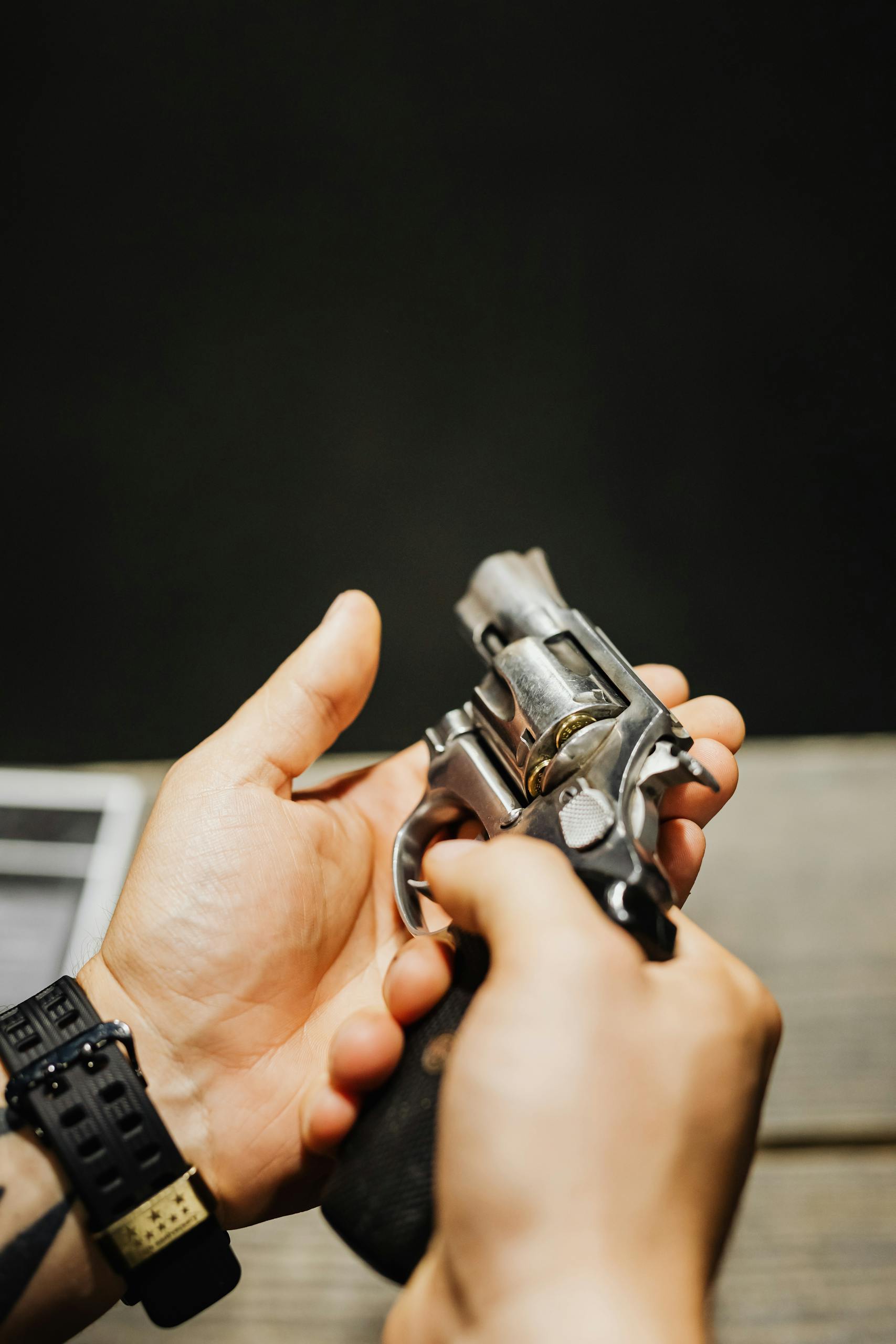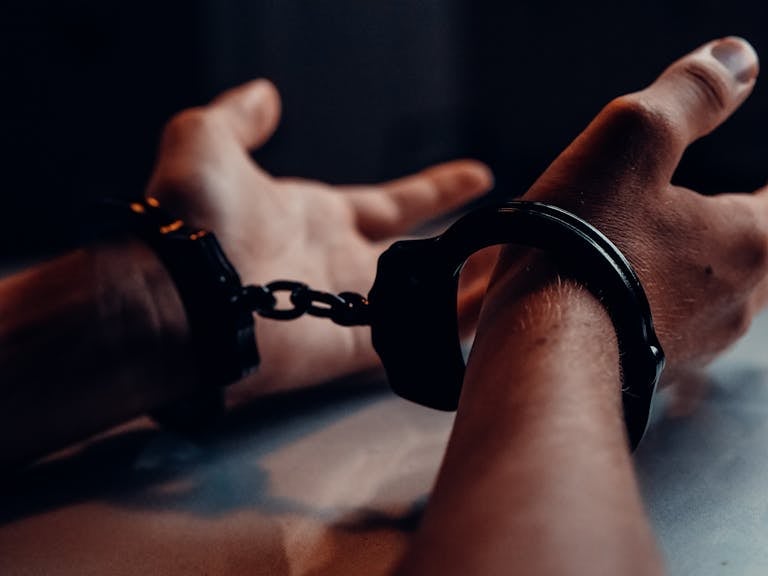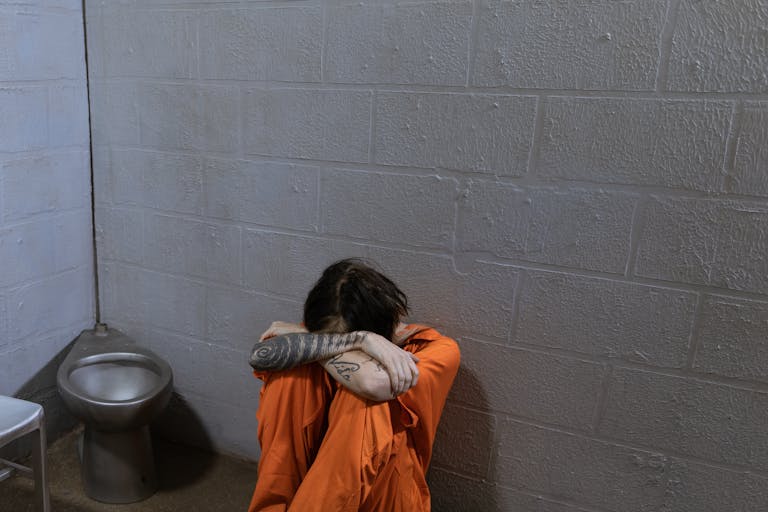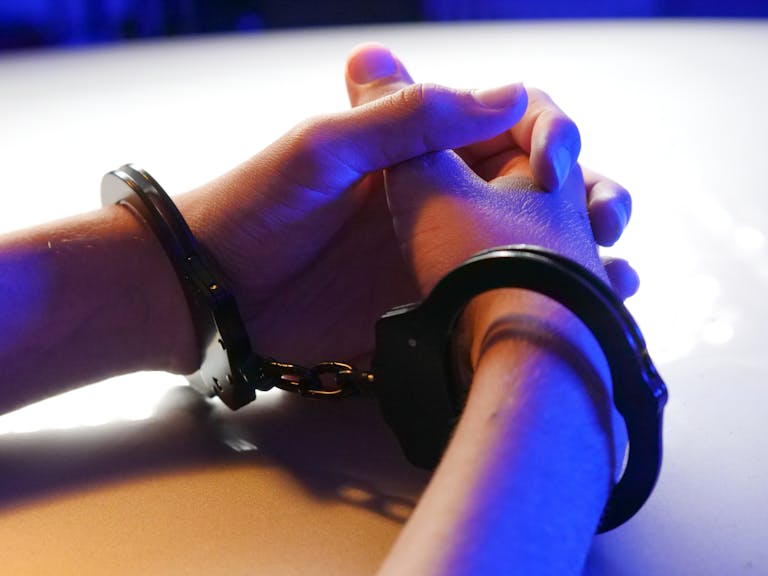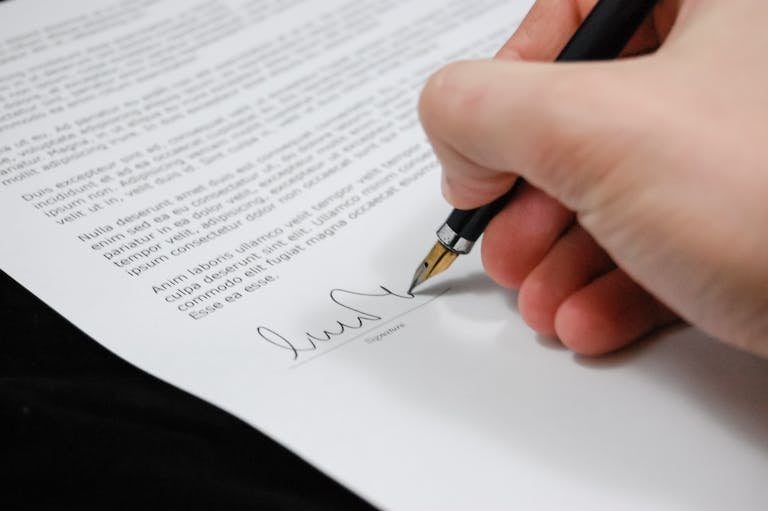FELON IN POSSESSION OF A FIREARM (Can a Felon live in the same house with someone who has a gun?)
I love my in-laws. I truly do. They are what you call “good people”. Honest, understanding, deeply caring individuals, who happen to be law-abiding citizens, taxpayers, and avid hunters. But aside from all that, they are also gun-toting Americans who truly love their firearms – and with that – comes a few “complications” when they roll into town and stay with us.
Mainly, should I be at all concerned that they are in the other room strapped with a small artillery. Put another way, can a convicted felon live in the same house with someone who owns a gun?
On that note, my normal response is to shut the eff up and not say anything. Consequences…. yeah, who the hell knows – but there has to be some, right? First, we shall answer the main question and get this out of the way:
Can a convicted felon live in the same house with someone who owns a gun?
No, you may not. As a convicted felon you cannot own or possess a firearm. Even though the firearm may not be yours, if you reside in a household with that firearm, you arguably possess it. If it is readily available to you, and you could go and get it, then that is, under law, considered possession.
A felon loses several civil rights and liberties after being convicted of a felony. One such right is the right to possess a firearm and ammunition.
Bear in mind, possession is not the same as ownership. Although a convicted felon is not in physical possession of a firearm; they can be found guilty of what is called constructive possession if the following are true:
- The felon knows that the firearm is in the home.
- The felon had the opportunity and ability to maintain control over the firearm.
Federal laws play a significant role in firearm possession restrictions, ensuring that convicted felons cannot own or possess firearms and ammunition.
State and Federal laws can vary by state, adding another layer of complexity to the situation.
There are about 393 million privately owned firearms in the US, according to an estimate by the Switzerland-based Small Arms Survey – or in other words, 120 guns for every 100 Americans.
The fact of the matter is with so many guns out there, it is virtually impossible to not be near a firearm in this day and age, thus creating many logistical nightmares. To be noted, this is all recorded data and does not take into account anything unregistered.
Gun ownership comes with significant legal implications, especially for those living with convicted felons.
What consequences are there for a convicted felon living in the same house with someone who owns a gun?
The right to bear arms is a fundamental right enjoyed by U.S. citizens as the right to own weapons such as guns. That right is often practiced for self-defense. What we often overlook, through no fault of their own, is the difficulties faced by a felon’s family members.
Being a loved one of a felon is very hard and will require sacrifice, as you have to struggle through many logistical challenges. One such challenge is that a person must refrain from having a firearm in the home the felon resides in, as Federal and most State Laws prohibit anyone convicted of a felony from owning arms.
Under Federal Law, the maximum sentence for a felon in possession of a firearm is 10 to 15 years.
If you are reading this and have been convicted of a felony and are residing in a home where there are weapons, it is in your best interest to get the firearms out of the home, as you never know what is going to happen.
Either that or vacate the home. Illegal possession of a firearm can lead to severe penalties, including hefty fines and lengthy prison sentences.
There have been cases of people found guilty of having a firearm just because their spouse kept a loaded gun on the nightstand and even other cases where an individual was found in constructive possession of a firearm when a gun was in the trunk of a car they borrowed.
Finally, the person who is a lawful gun owner can potentially be criminally liable as well when a convicted felon has access to firearms and ammunition. Whether a crime has been committed depends on circumstances and state law.
What preventative measures can you take if you have a firearm in the home and live with a convicted felon?
The safest option for felons and those they live with is to avoid having a gun in the home altogether. Precautions such as locking the gun in a safe – with the non-felon having the only key – may be taken, however, some terms of release state that you cannot have a firearm in the residence at all.
All firearms must be in the control of the legal owner. You either physically carry it on your body or store the firearm in a place that the felon has no access to.
In most case scenarios, a prosecutor could still argue that the felon exercised some sort of control over the gun.
Since possession of a firearm can be actual or constructive, it’s usually a lose-lose situation. Although every case is different, it is not worth the risk of criminal charges.
Make no mistake, a felon can own a firearm after they successfully restore their rights. Until then, they permanently lose their right to carry a firearm and must take extreme precautions for their well-being and safety.
If you have a conviction that prevents you from owning a gun, it is best to consult an experienced attorney or parole officer to clarify your legal status.
We are all aware of the fact that the life of a felon is extremely hard, but one (more) lapse in judgement is all it takes to turn your life even more upside down.
Conclusion on a Felon in Possession of a Firearm
To sum it all up, here are the thoughts and perspectives put very well by a criminal lawyer:
People come into my office every week and usually, when they come in, it is because something happened that they never expected to happen. As a lawyer, people are not coming to me because something happened that they planned out.
People get a lawyer because something unexpected happened and now there are consequences, and they need the lawyer to help them deal with those consequences. From my perspective, I would be concerned if I were convicted of a felony, and I was residing in a household with firearms.
I would be thinking what happens if someone down the street robs a bank and they run into my house and the police follow them? If the police come in and they see the firearms, I am going to get a new felony for possession of firearms.
You’ve got to get the firearms out of the house, or you have got to get out of the house. One way or the other, you cannot be together in the same home. Even if they are locked up in a safe, you are still running the risk that if the police come in and find out about this, you are going to be charged with new felonies.
I would not take that risk and I would not encourage you to take that risk.
There seems to be a lot of misinformation on the web that can lead to some very grave consequences. If this is something that is important to you (and it should be if you are reading this) – Do your research, and always consult with an attorney.

